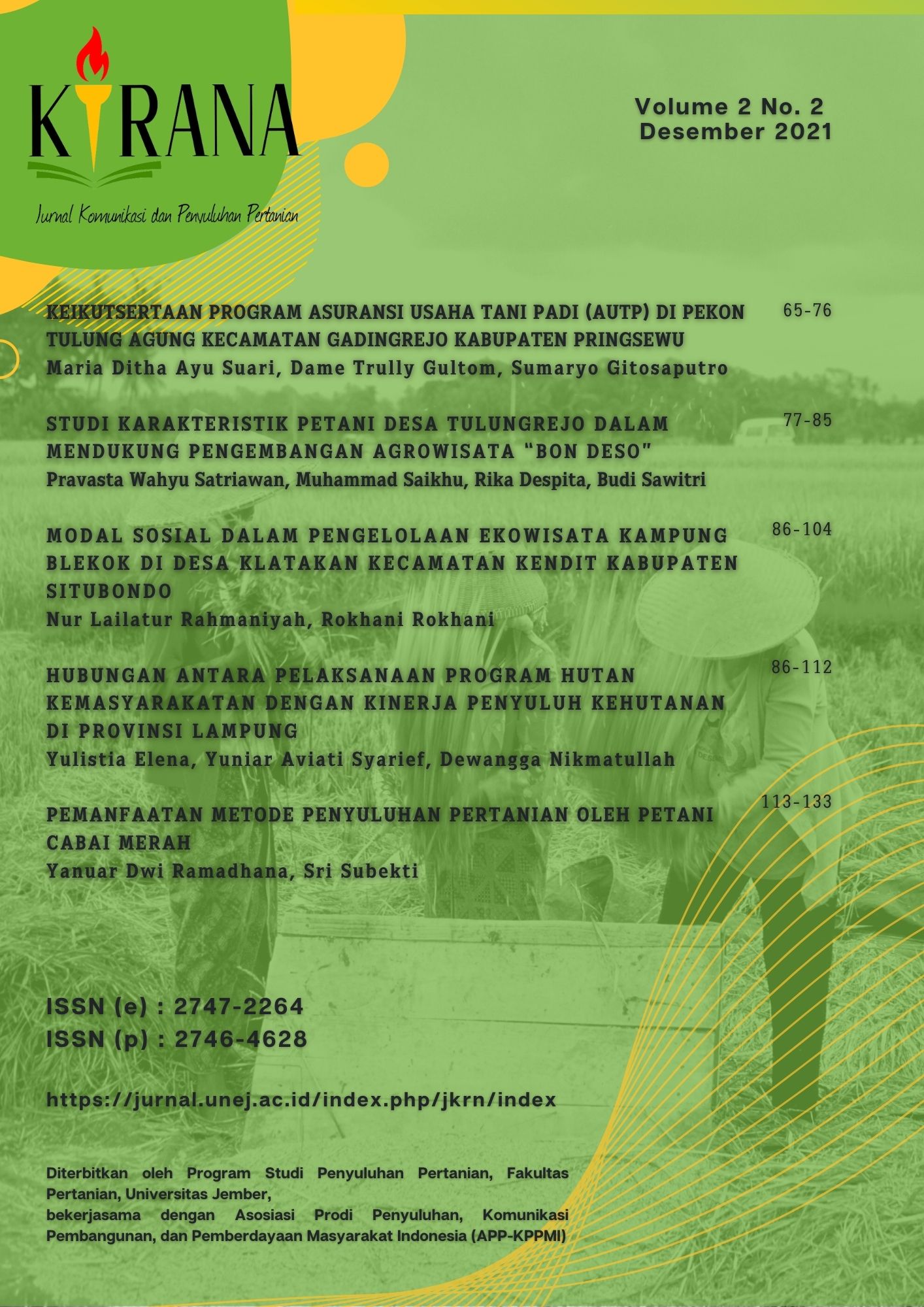Modal Sosial dalam Pengelolaan Ekowisata Kampung Blekok di Desa Klatakan Kecamatan Kendit Kabupaten Situbondo
Social Capital in The Ecotourism Management of Blekok Village in Klatakan Village Kendit District Situbondo Regency
DOI:
https://doi.org/10.19184/jkrn.v2i2.23666Keywords:
Ekowisata, Kampung Blekok, Modal Sosial, Tipe Modal SosialAbstract
Klatakan village has a tourist spot-based ecotourism sector which is Blekok village. Blekok Village is managed by the Environmental Service Department of Situbondo, tourism awareness group, and village government. It is also supported by the local community and other parties. Thus, it shows a cooperation among themselves which social capital is needed, like networks, trust, and social norms in managing Blekok Ecotourism village. The aim of this research is to describe the meaning and the types of social capital in managing Blekok ecotourism village. The method used in determining area of this research was purposive method. This research was a qualitative case study. In determining the research informants, purposive sampling method was used. Data were collected by interviews, observation, and documentation which were analyzed by the Miles and Huberman methods. The results of this research are: 1) Cooperation network of Tourism Awareness Group, Environmental Service, Village Government, community and outside parties; 2) Written norms in the form of income sharing, rental rates, prohibition of plastic waste, prohibition of selling the same product, period of support. Unwritten norms consist of exemption from entry ticket fees for employees and the Klatakan community, cleanliness, prohibition of selling expensive products, rules for working hours, distribution of parking fees, meeting attendance, being on time; 3) Trust goes well. However, there are still concerns because it is prone to fraud. The hope is to be more advanced, increase human resources, support in the form of facilities, play an active role, and can improve the economy. Interactions are work coordination, mutual assistance, communication, and job evaluation. Types of Social Capital are divided into 3, namely: 1) Bonding in the form of Mutual Value, kinship, and tolerance; 2) Bridging in the form of a Tourism Awareness Group bridging the community with outsiders, the Environment Service bridging the Tourism Awareness Group with outsiders; 3) Linking in the form of cooperation between the management and external parties.
Keywords : Ecotourism, Kampung Blekok (Blekok Village), Social Capital, Types of Social capital



